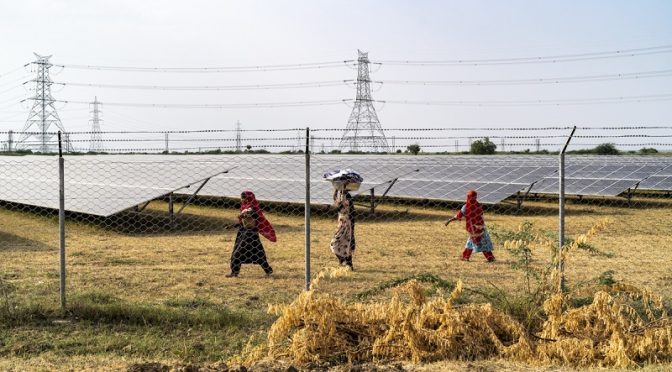
Financial Structure and Partnerships
The organized financing includes a loan of Rs 14.6 billion, which is about $175.9 million. The main donors are the Asian Development Bank (ADB) and the Asian Infrastructure Investment Bank (AIIB), each giving Rs 7.3 billion. Big international banks are all committed to supporting sustainable growth, and this financial partnership shows that.
Impact on Climate Change and Local Economy
India’s move toward better energy is based on this project, and the world’s fight against climate change is equally important. It was emphasized by Suzanne Gaboury, ADB Director General for Private Sector Operations, how important the private sector is to this journey of change. This solar plant also uses bifacial photovoltaic power modules made in the United States. This supports the domestic solar module industry and broadens the supply chain.
Environmental and Long-term Benefits
Over its estimated 25-year service life, the Surendranagar solar plant will produce an average of 805 gigawatt-hours of electricity each year. This production power means that about 662,441 tonnes less carbon dioxide is released into the air every year. This project shows how ADB plans to help facilitate long-term local currency financing for renewable energy projects, which aren’t always backed by local capital markets.
History and Future Directions
ENGIE and the ADB have worked together before in India. After working together to finance ENGIE’s main project in 2020, this is their second project together. ADB is dedicated to building stable, long-term partnerships with groups that support green energy and sustainability, as shown by these continuing partnerships. By making smart investments, this method not only helps with environmental goals but also makes the economy more stable.